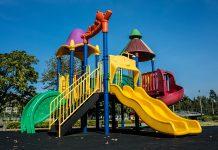Since I teach philosophy for a living, it’s often on my mind even when I get home and get into Mom mode. The Ancient Greek philosopher Aristotle thought that feeling anger could be a good challenge for us, like a test of our behavior. In experiencing anger, we could show ourselves how far we’d come after months of working hard not to lash out when provoked. He believed that anger is nothing to fear, but it is something to manage.
My children give me plenty of opportunities to practice managing my anger. I often fail, but sometimes I hit what Aristotle called the “mean,” which means achieving an appropriate level of anger and handling it appropriately.
The Challenge
My 6-year-old got mad that I caught him brushing his teeth without starting his two-minute timer. I made him start again, this time with the timer. In response, he hit me across the face with the tube of toothpaste.
I am prone to anger, which Aristotle says is a fine predisposition for this challenge. In fact, my predisposition to anger provides the perfect scenario in which to practice being virtuous.
Handling Anger Appropriately
I saw red. I wanted to slap him across the face. I don’t hit my children, so my go-to move until now has been to go to his room and remove something he likes: his radio, his lamp, a book, a toy.
But I have known for a while now that punishment is far inferior to a true lesson, so I just stood there, stunned, scanning my brain for an Aristotelian response.
Before I knew it, I started saying (just shy of shouting): That makes me very angry! I do not allow anyone to hit me across the face with toothpaste! No one is allowed to hit my face!
His Response? Ok I will brush my teeth with the timer, but I will sit on you. So he did. I think it was his way of saying “I’m sorry.”
I let him.
The Lessons
Aristotle would likely call my response to my anger “beautiful.” By this, he meant acting in the right way at the right time.
First, I acted rationally, not out of rage. Second, I kept in mind that my job as a mother is not to make sure my kid never feels anger, but to teach him to get angry appropriately. I need to model for him how to react virtuously to an insult, for example, to being slapped across the face with toothpaste.
My best and most honest response was to narrate what was happening, in my best and most honest voice.
If I wanted him to be able to vocalize his anger rather than use his hands to hit, then I’d have to vocalize my anger. If I wanted him to stick around rather than walk away, I’d need to show him how. And, finally, if I wanted him to forgive me when I mess up, I’d need to model forgiveness for him. I had to show him that his messing up wouldn’t erase my love.
Parenting philosophically helped me show my son four lessons: 1) that it’s OK to get angry, 2) how to express his anger without hurting anyone, 3) how to stand up for himself, 4) that being angry with someone doesn’t equal loving them less.
Research says that we learn from our successes just as much or more than from our failures, so it’s important for us moms to take note, write them down, and keep these principles for future use.













